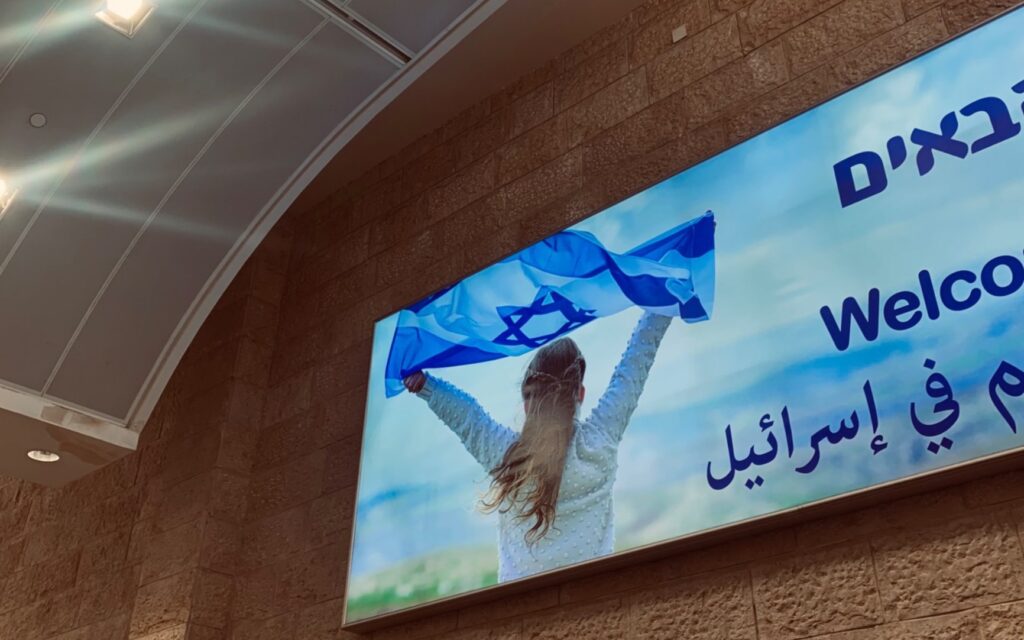“How can I share the beauty of this land without the looming reality of its current situation? How can I inspire my readers to add this remarkable destination to their bucket lists while acknowledging the trauma the land is experiencing right now?”
“How can I share the beauty of this land without the looming reality of its current situation? How can I inspire my readers to add this remarkable destination to their bucket lists while acknowledging the trauma the land is experiencing right now?”
This is Part I on a series of traveling to Palestine.
In life, we all wrestle with difficulties and challenges. None of us can escape the trials of existence, whether it’s pain, trauma, heartache, or countless other burdens. Yet, what sets some of us apart is that, for a significant portion of our lives, these adversities become our constant companions. Some of us just don’t ever escape them.
As I sit down to write this piece, I keep contemplating where to start. Initially, my intention was to expand on my journey to a place I had never imagined visiting before. Not because I didn’t want to, but because my mind was preoccupied elsewhere. My previous experiences and adventures all had something in common: the pursuit of enjoyment, the expansion of horizons, and the embrace of new experiences. My trip to Palestine was new and different, but not in the ways I expected it to be.
How can I share the beauty of this land without the looming reality of its current situation? How can I inspire my readers to add this remarkable destination to their bucket lists while acknowledging the trauma the land is experiencing right now? It’s not that my enthusiasm has disappeared; it’s the overwhelming urge to address the sombre reality that we find ourselves in one of the darkest chapters in history. Just three weeks after returning, as I was on my way home with the feeling of living in a daydream, the world I had just left began to crumble – quite literally.
I’ve titled this piece ‘Secretly Not Foreign’ for more than one reason. First and foremost, I was taken aback by the sense of belonging I experienced when arriving in Palestine. My expectation was to feel alien, out of place, and unmistakably foreign. Although we encountered similar attitudes from different members of authority and those who live there, attempting to make us feel like outsiders, it just reinforced the notion that this land was, to some extent, my home too. I had landed in the land of Muslims.
My intention in composing this narrative was to recount my experiences, from the moment we touched down to our departure back home. I aim to offer you glimpses of what it’s genuinely like to visit Palestine. However, I cannot do so without shedding light on the harsh realities faced by the Palestinian people each day. If I found their way of life heart-wrenching just over three weeks ago, how could I begin to describe their day-to-day lives now?
Arriving in Jaffa

Commonly known as Tel Aviv, arriving at the airport was an experience in itself. As we were boarding, I kept thinking about how interesting the group of passengers must look. The plane consisted of mostly Muslims and Jews, all ready to fly overseas to visit the exact location, but completely different lands.
The journey wasn’t long – just under 5 hours. And as I previously hadn’t been around predominantly Jewish areas, I wasn’t familiar with hearing Hebrew. But the duration of the flight was a good amount of time to be able to recognise when it was being spoken. Every moment felt like an opportunity to learn something new, and I was certainly keen.
Upon arrival, I have to be honest about not knowing what to expect. As soon as you enter the airport, you’re met with a ‘Welcome to Israel’ sign with a picture of a little girl holding the flag high. The passport checks are always routine of course, but being asked particular questions was new. Apparently, what is also quite common is to have your passports taken whilst waiting a couple of hours for the border control clearance process. It isn’t unusual for you to be asked to answer a couple of questions either however, I wasn’t one of those people thankfully.
As passports are no longer stamped there, the process of receiving the card (always to be carried along with your passport) wasn’t short. But in those three hours, I continued to observe and wonder what to expect from this trip, excited and partially nervous. A kind member of the airport brought our group sandwiches but I wasn’t hungry at the time. I was just ready to make our way to Majid Al-Aqsa.
Finally, whilst waiting for our tour guides to gather everyone to board the coach, I sat down and waited. I noticed someone had left their passport on the chair beside me and instinctively I picked it up. I found myself staring at it once I realised it was a resident’s passport, wondering at what this document symbolised, “State of Israel.” After deciding I wouldn’t really know how to go about finding its owner, I put it back down. This wasn’t a place I blended in, and I didn’t want to make that more apparent than it already was.
Everything felt a little like a whirlwind – yet moving in slow motion. I was constantly entranced by how different the people around me looked. From attire to mannerisms, and to be surrounded by signs in both Hebrew and Arabic. It felt like stepping into a different world when all I had done, was land in an airport.





